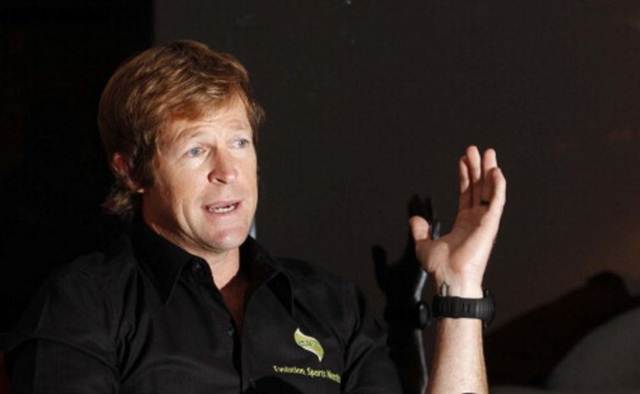Jonty Rhodes terms himself ‘a man without a plan’
He also explained why being a man without a plan worked in his favour.
2 Min Read


Jonty Rhodes, former South African cricketer and one of the best fielders of all time, has unveiled that he used to be a man without a plan during his playing days. He was invited to the National Institute of Technology Tiruchirapalli campus as a guest lecturer at the annual cultural extravaganza of NIT-T.
Rhodes is currently mentoring Ruby Trichy Warriors side in Tamil Nadu Premier League (TNPL) and has been with the Mumbai Indians in the capacity of the fielding coach for a long time. It is a known fact now that Jonty has immense respect for India, has moved to the country and is contributing to cricket here in every other way.
As he walked out to the stage at the NIT there were loud chants of Jonty… Jonty… Jonty. In his talk, the 48-year-old opened up on different stories of his career but when he recalled the famous run-out involving Inzamam-ul-Haq in 1992 World Cup, it prompted loud cheers.
“Who would run all the way to the wickets; instead of throwing the ball at the stumps, trip over shoelaces and dive into the wickets? Everyone was shouting throw the ball Jonty, but only thing I had in my advantage was that I knew it was Inzamam-ul-Haq. I am eternally grateful to Inzamam and his running ability. I continue to thank him every year,” the veteran explained the dismissal of the former Pakistan captain.
He further elaborated how being the man without a plan worked in his favour. “When you are fielding at backward point, it is a good thing to be a man without a plan, because you don’t know what’s going to come; being flexible is the key.”
It is all about doing the basics right
“No matter what level you are playing, it is about doing the basics well not just in the game but in the build-up to it. A big lesson to me is – practice makes (you) perfect,” the 48-year-old added.
Jonty said it was no good getting an opportunity and not being ready for it and he also felt that the fear of failure held most people back from stepping out of their comfort zone.
Download Our App